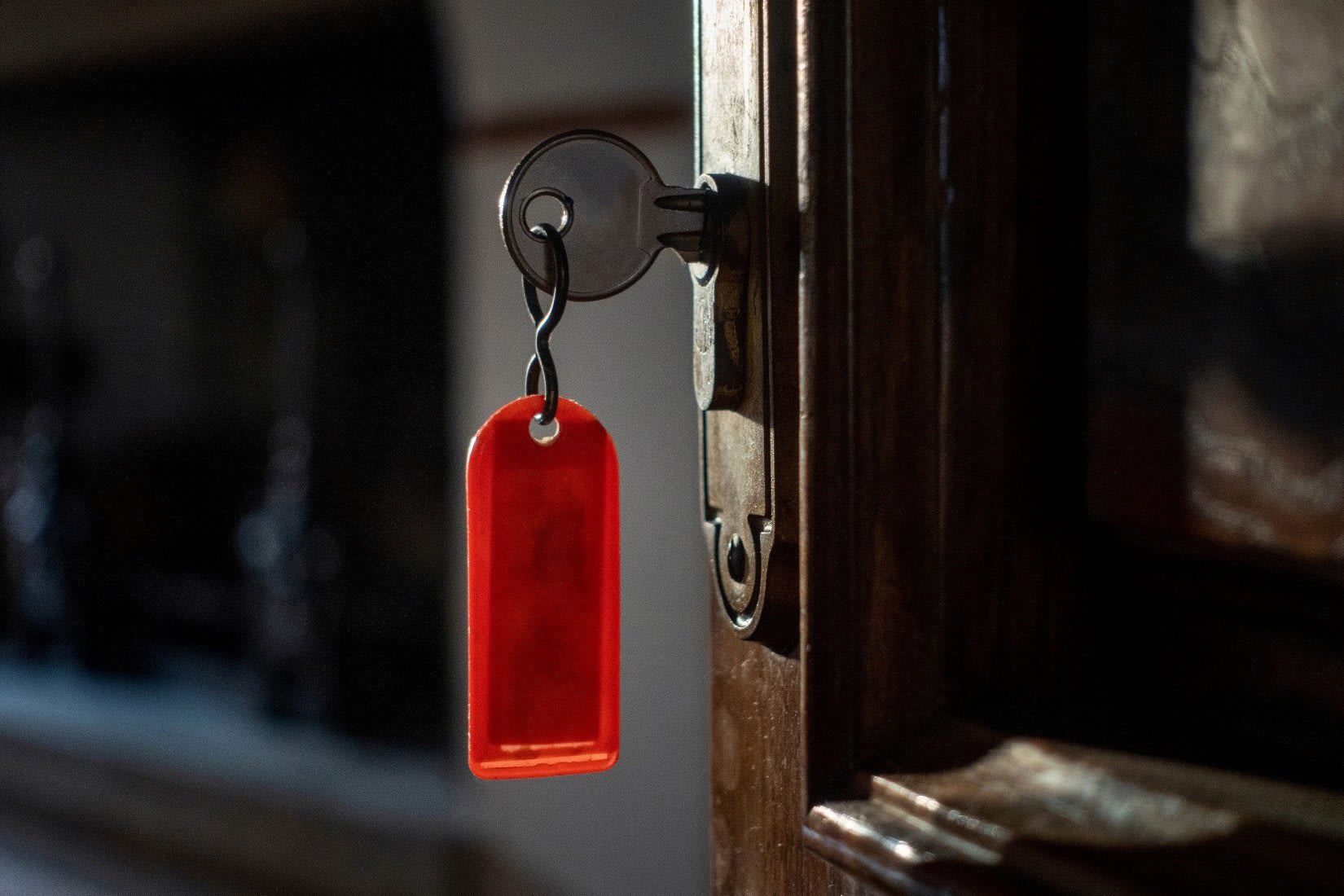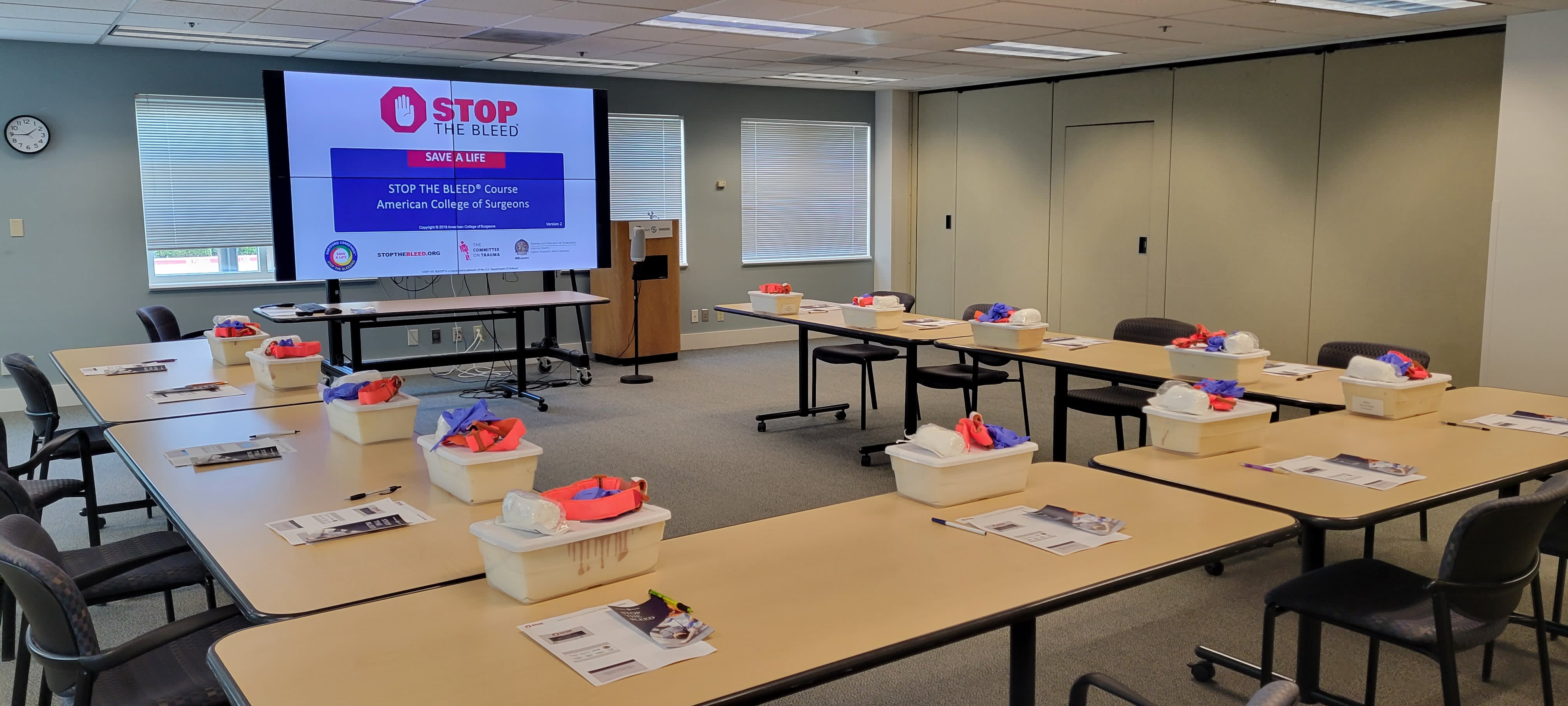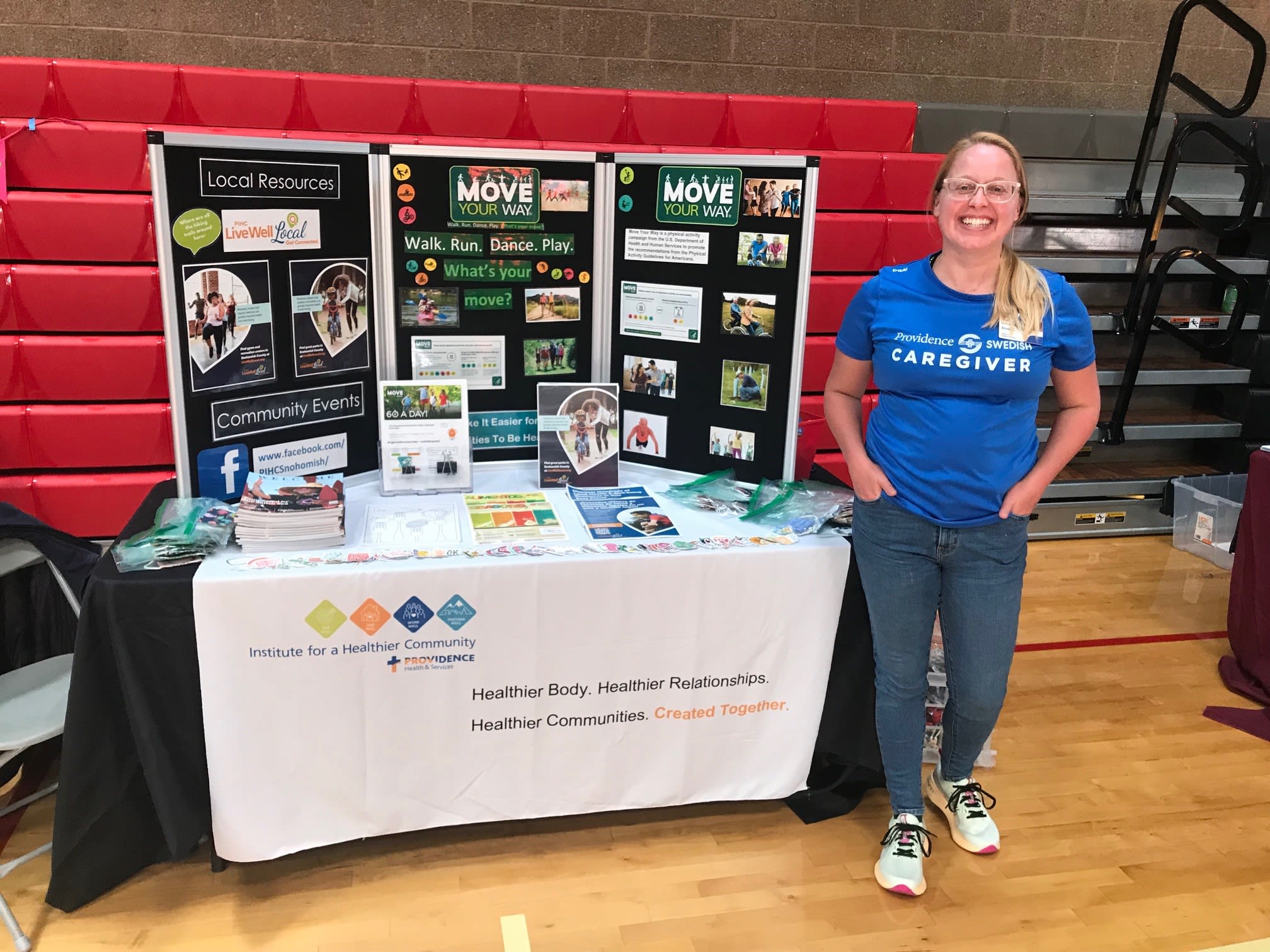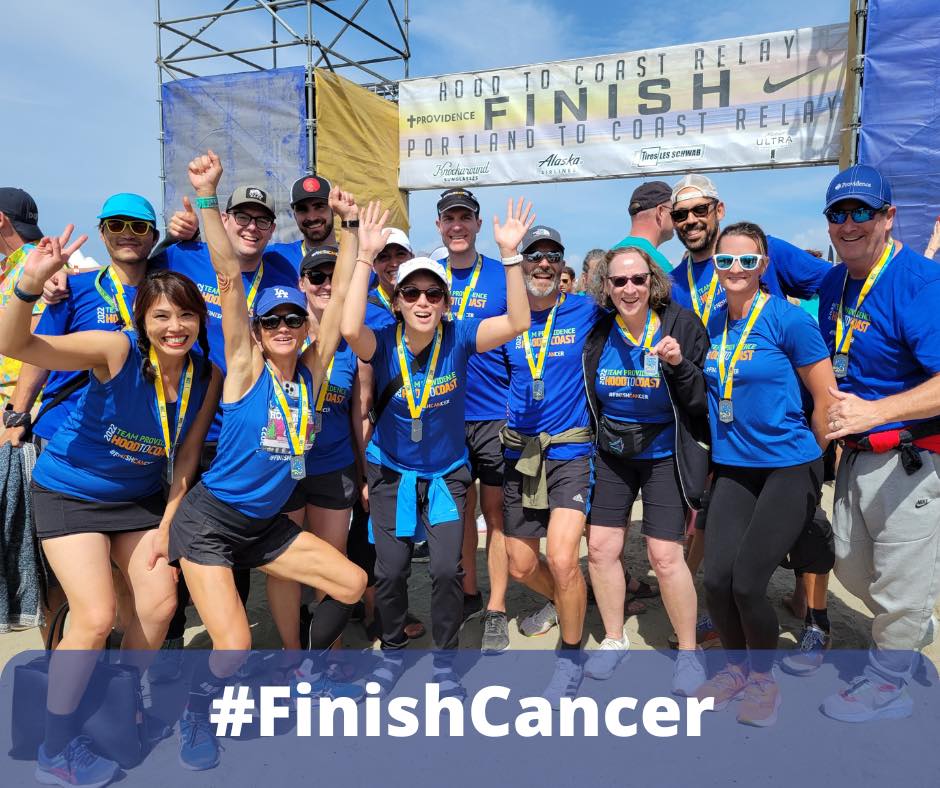Reflections on National Minority Mental Health Awareness Month
National Minority Mental Health Awareness Month lands in July each year and is a time to bring awareness to the “unique struggles that racial and ethnic minority communities face regarding mental illness in the United States.” As an African American man, Jawanza Hadley, director of the Work2BeWell program, is familiar with some of these struggles and through years of intentional efforts, he has reached a point of mental wellness and wants to encourage others to choose to prioritize their own mental health and wellness.
Mental health and wellness in BIPOC communities
Jawanza grew up in a single parent household, in a neighborhood where drugs, alcohol, and violence were prevalent. “These are all too often things experienced by people of color,” he shared. But even within these circumstances, his mother was able to model what ‘wellness’ looked like for her and she did everything she could to ensure Jawanza and his sister could chart their own paths to health and well-being. He understands that this isn’t typical or even possible for others, especially other members of BIPOC (Black, Indigenous, and People of Color) communities, where there can be a stigma on talking about mental health. “There’s often this belief that we [people of color] can’t be affected by mental health challenges, but that couldn’t be further from the truth.”
Nearly 5 million Black/ African American people are living with a mental health condition in the United States and almost 25% report having a serious condition, like bipolar disorder or schizophrenia. Of those living with a mental health condition, only one-third seek treatment, like seeing a psychiatrist, therapist, or social worker. There are a multitude of reasons why so few individuals pursue professional help: distrust of the healthcare system, lack of access to care, lack of culturally congruent healthcare providers, prevalence of misdiagnosis, and more. But one major reason is the stigma that exists around mental health. This is true in other minority communities as well.
Jawanza’s path to Providence
For Jawanza, the support he received from his mother from a young age put him on the trajectory to mental wellness as an adult and this has allowed him to follow his dreams of serving his community. After college, Jawanza spent thirteen years teaching at the high school level. He imagined that he would stay in this field for the rest of his career. In addition to teaching, he also coached football, basketball, and track and was very involved in the school. Then, a round of layoffs occurred that left Hadley without a job and without a plan. “I had to figure out what to do with myself,” he says. “All I’d ever known was being an educator. I was struggling with my mental health at this time, specifically anxiety and depression.”
Through these challenging times, Jawanza came out of the other side with a greater focus on taking care of himself and he knew he wanted to share his experiences and what he’d learned with others. This led him to a role at Oregon Health and Sciences University in their Digestive Health Clinic. It was at this time that he realized he has a passion for mental health and working with people with significant mental health challenges and this is what ultimately brought him to Providence.
“Providence’s Mission aligns with who I am to my core and the focus on serving poor and vulnerable populations appealed to me greatly,” says Hadley. “Joining the Providence team was a no-brainer.” He started as a senior project manager with the Providence system Mental Health strategy team. Currently, Jawanza leads Work2BeWell, which is Providence’s teen mental health program. “This has been the perfect opportunity for me to combine my passion for working with youth, mental health and wellness, and supporting my own mental health,” he says.
The importance of mental and physical health
Through his own lived experiences, Jawanza is able to relate to and understand the challenges individuals, especially members of minority communities, face with mental health. That often starts with lacking a true understanding of mental health and wellness. Mental health is our “emotional, psychological, and social well-being” and there are many things that can impact our mental health like brain chemistry, genetics, trauma, and family history of mental illness. More than just the absence of a mental illness or condition, mental wellness is a “state of well-being in which an individual realizes their own abilities, can cope with the normal stresses of life, and can contribute to their community.”
Though mental and physical health are intimately connected, there is often more focus on the latter. “The traditional medical model is really set up to support and address the physical side of health, not as much the mental,” says Jawanza. “When I first joined Providence, my team worked in the emergency departments often and I noticed that we were well equipped to handle physical injuries, like a broken arm or cardiac arrest, but not the severe mental health challenges many of our patients came in with.” He shared that this helped him further develop his understanding of mental health and wellness as being connected with and interdependent on physical health, not separate as they’ve often been viewed.
Raising awareness of mental health struggles in minority groups
These ideas of mental health and mental wellness can be foreign or even intimidating to people. In many BIPOC communities, there has been a historical lack of attention and focus on these important facets of their overall health and now, organizations and government agencies across the country are recognizing July as National Minority Mental Health Awareness Month.
“This lends an opportunity to recognize that people within these communities are struggling, that these struggles are normal and that they are not alone in feeling how they feel. We can elevate the conversation around available resources and tools, including ones created for members of ethnic and racial minority groups,” says Hadley. And creating more of a sense of togetherness and camaraderie is important. “It’s powerful to know that there are other people that look like you who are also struggling and even more powerful to see them get through it,” he says. “We can make these changes in our lives. We can do it together.”
Work2BeWell supports BIPOC teen mental health
As the director of Work2BeWell, Jawanza is proud to share about the wealth of resources they have available about mental health and wellness, including many created specifically for BIPOC youth. “The pandemic has shown us that in these groups, teenagers often don’t have access to mental health resources and that’s where Work2BeWell comes in,” he says. The Work2BeWell program offers free online curriculums and resources in areas like stress, mental wellness, suicide prevention, and justice, equity, diversity, and inclusion. They will be launching a new BIYOC (Black, Indigenous, Youth of Color) mental health primer, which looks at the justice system, historical and current context, shares ways to be active, and provides access to resources.
In partnership with The Defensive Line, a non-profit started by Solomon Thomas of the New York Jets and his parents in honor of his sister/their daughter who lost her life to suicide, Work2BeWell also created a BIYOC mental health primer geared towards educators and coaches. Since these are the adults that often spend the most time with teens, it is crucial that they have an understanding of mental health as well as social factors that impact these students, including bias, microaggressions, and more. “We created this curriculum to equip the adults in their lives with the tools to have important conversations with students of color,” says Jawanza. “For example, if you’re a coach and your athlete comes to you, as a trusted adult in their life, and shares that they were pulled over on their way to practice and they feel they were discriminated against, how do you have that conversation?” Whether these teachers and coaches are also POC or not, this training will provide essential education to these adults on the best ways to support the mental health needs of their BIYOC students.
Also, within Work2BeWell is the National Student Advisory Council, which is a teen-led group dedicated to amplifying and strengthening the program and its vision of empowering teens to thrive. Through NSAC, Work2BeWell has created an opportunity to connect directly with teens from high schools across the country to hear directly from these young people and to expand the reach of W2BW’s message into a growing number of communities.
Prioritizing mental health and wellness in our lives
It can be challenging to know where to start when it comes to taking control of your own mental health and wellness. Even if you aren’t struggling right now, it can be very helpful to identify the trusted people in your life, whether those are friends, family members, teachers, or a neighbor.
“I think a lot of times we get it into our heads that we have to do it all alone. But it’s okay to find support. We can reach out to people we trust and work together to figure this out.”
Jawanza Hadley, director, Work2BeWell
Another tip to support your own mental health is being willing to say ‘no.’ This can start with understanding your likes, dislikes, triggers, and challenges and then keeping these considerations in mind as decisions are made. “I’m usually a yes person,” he says. “I probably say yes too often, but it’s okay for me to turn down opportunities or requests. Even for my loved ones.” This can be challenging with friends and family members but modeling this type of behavior can actually be beneficial to those relationships and can encourage them to develop their skills in setting and maintaining boundaries. “Just because I say no to my mom this one time doesn’t mean I will always say no or that I don’t love her. But in this moment, I’m taking care of myself.”
Lastly, Jawanza encourages anyone that is struggling, has struggled in the past, or knows someone that is struggling with mental health to stay hopeful. This is easier said than done, but even if they don’t know in the moment what they’re going to do or how to find the resources and support that they need, he’d urge them to keep hope alive. “Wellness is going to look different for every single person, but it is achievable for all of us. We all have choices and options in life, and I encourage everyone to make mental health and wellness a priority.”
Learn more
To learn more about National Minority Mental Health Awareness Month, check out their website and to learn more about Work2BeWell, follow us on Facebook, Instagram, Twitter, or LinkedIn or check out our website.
For mental health resources, please visit our resources page.
If you are in crisis and need immediate support, please call the National Suicide and Crisis Lifeline at 988 or live chat on their website.
Related resources
Teens bring mental health awareness into spotlight with Work2BeWell



